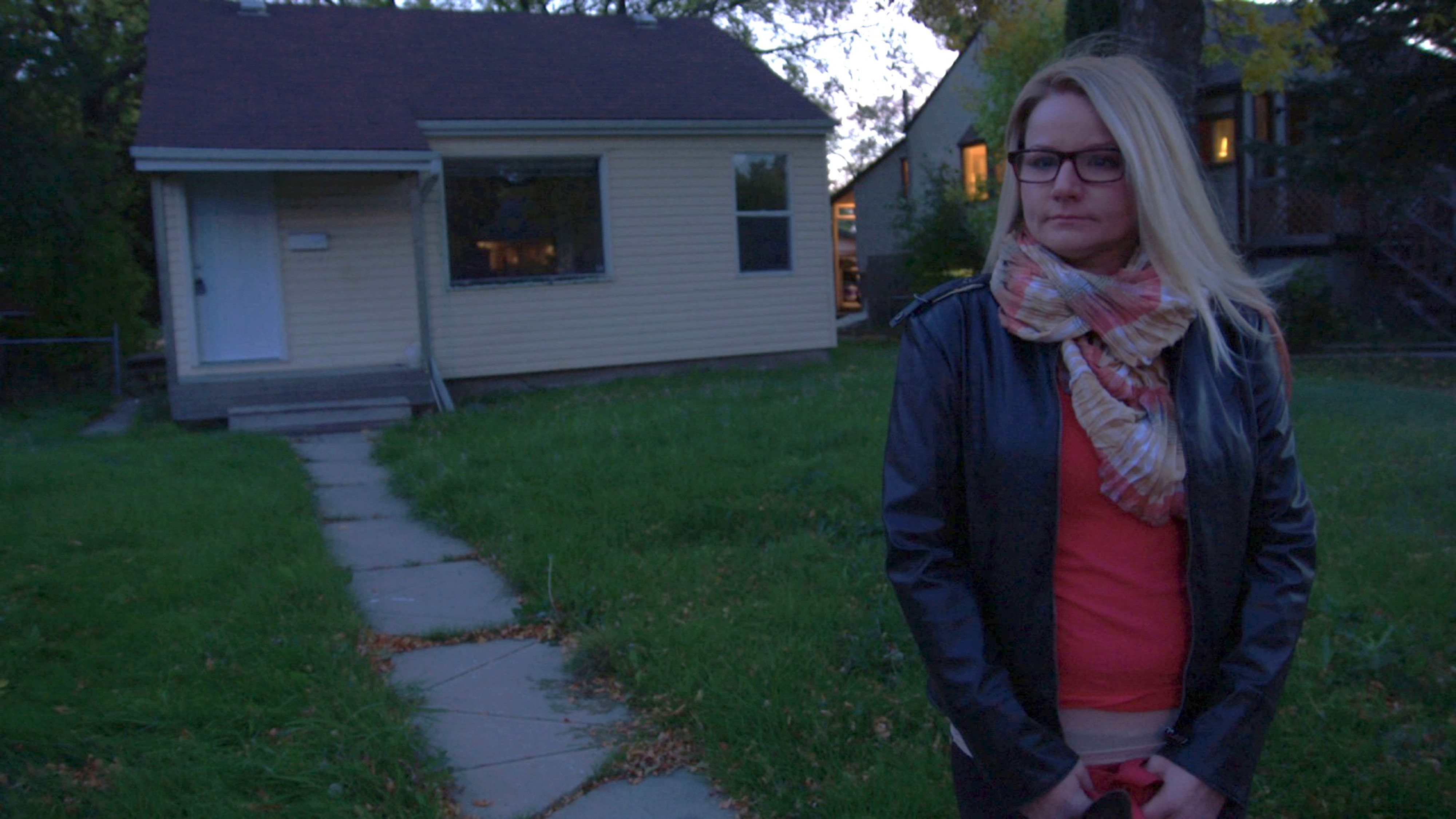Like this article? rabble is reader-supported journalism. Chip in to keep stories like these coming.
There’s a war raging across Canada. It’s invisible, but deadly with extensive collateral damage. The destruction is aided and abetted by our current health care, criminal justice, family law and political systems. Truth is, we all support this war by simply ignoring it — and that’s just too easy to do because it is fought in private havens that should provide sanctuary to every woman: their homes.
Award-winning filmmaker Shelley Saywell has created an incredibly intimate documentary, The War at Home, by examining the stark realities of intimate partner violence from a feminist perspective using a gendered lens.
The tragic lives of five incredibly wonderful women unfold before our eyes. These strong, brave, articulate women share their wealth of knowledge and experience while showcasing the constant fear they deal with on a daily basis. Until you experience this type of abuse you will never really understand intimate partner violence. These women have lived experience and that alone makes them the experts. It’s their voices we need to listen to in order to end this form of gendered violence.
Saywell introduces us to Lara a mother and health care professional living in Toronto. Her ex-husband doesn’t believe in divorce and is determined to make Lara’s life hell. It’s clear that his reign of terror will never end.
Lara navigates the criminal and family legal systems with the help of Galit Menahem, paralegal, abuse counsellor and survivor of domestic violence. Once a successful business person living the perfect life, this mother of three left everything but her children behind in exchange for her freedom. Galit has since dedicated her life to helping women live free from violence.
Celeste Yawney was an abuse counsellor at a shelter in Regina before her boyfriend murdered her. Celeste’s murderer had served five months for aggravated assault and was on probation when he killed her. Her two sons are growing up without their mother.
Then, there’s Celeste’s friend, Cristin Hepting. Cristin was viciously attacked by her ex-partner who pled guilty to assault causing bodily harm. His punishment was a $50 fine.

Lani Elliot former RCMP officer, advocate, and neighbor to Celeste’s parents also survived domestic violence. Her husband followed the typical pattern of abusers. Charming and non-violent right up until the day they married when he announced, “I own you now.” The first assault took place when Lani was six months pregnant.
Statistics Canada reports 40 per cent of women abused while pregnant reported that the abuse began during pregnancy. The end nearly came for Lani when he beat her with an aluminum baseball bat. Her husband was sentenced to a couple of months in jail.
These are educated women holding down professional positions. This isn’t supposed happen to women like them because women like them should recognize the signs and would never become involved with abusive partners.
The truth is, once married, these men are controlling and isolating. They exude a powerful sense of ownership and believe they no longer have to be nice guys to their wives. But, these men are making choices and they should be held accountable for their destructive actions.
Often the police, crown and defense attorneys, as well as judges contribute to the ease with which these men have access and opportunity to threaten, stalk, coerce, and murder their former partners. Intimate partner killings are never spur of the moment. Even though these are premeditated murders, most men will serve less time than they would for any other type of murder.
An Angus Reid poll commissioned by Interval House in 2014 found 24 per cent of Canadians believed that women are responsible for the abuse inflicted on them. When subdivided by gender 34.3 per cent of men compared to 14.1 per cent of women believe this to be true. This is victim blaming and it places the onus squarely upon women to protect themselves from their abusers. And, that is unacceptable.
Women are in a no win situation. They’re criticized for staying in abusive relationships, but also faulted for leaving and putting themselves in greater danger. It’s well documented that for the first 18 months after a woman leaves her chances of being murdered by her partner increase nine fold.
Women are condemned for returning to their abusers when they have nowhere else to go. A 2013 survey conducted by the Canadian Network of Women’s Shelters and Transition Houses found that on a given day 3,781 women and 2,508 children were given shelter. Of those women, 114 were pregnant. A total of 110 women had been threatened with a gun. An additional 302 women and 221 children could not be accommodated and were turned away.
The War at Home highlights the fact that few, if any, people ask these men why they choose to abuse their partners. These men rarely abuse friends, coworkers, or strangers. Unlike other violent crimes, there is no incentive to stop when they learn they will rarely be held accountable for intimate partner violence.
Every six days a woman is killed by a current or former partner. In the past 10 years more Canadian women have been murdered by intimate partners than all the Canadian troops killed in Afghanistan. Approximately, 25 per cent of these women had already left the relationship.
Saywell believes it’s time to end the silence surrounding intimate partner violence. “I feel that maybe it was Ray Rice, Jian Ghomeshi, Bill Cosby, or the campus rapes, but violence against women has really become mainstream in the last 12 months.” Saywell told rabble.ca over the phone.
“I can’t remember a dinner with women friends where it hasn’t come up,” she says. “It’s time to be talking about it and saying ‘that’s enough.’ These public cases started the conversation, but the hidden war of intimate partner violence is an epidemic and it’s violence against all of us.
“I’m really glad the conversation has begun and I want to celebrate the brave women in the film for sharing their experiences.”
The War at Home makes it crystal clear, Canada needs a national strategy to address this gendered epidemic. On May 27, 2015 NDP MP Niki Ashton’s Motion 444, A National Action Plan to End Violence Against Women was voted on in Parliament. It was resoundingly rejected by the Harper government. The time is right for Ms. Ashton to bring this motion before Parliament again.
I encourage health care workers, police officers, lawyers, judges, and anyone with a woman in their life that they love and care for to watch The War at Home. Then, I want you to share what you learned with co-workers, friends, and family. Let’s have uncomfortable conversations about the hidden wars being waged in our homes and let abusive men know that this war is coming to an end.
The War at Home airs Thursday, March 17 at 9 p.m. on CBC-TV Firsthand.
Like this article? rabble is reader-supported journalism. Chip in to keep stories like these coming.




